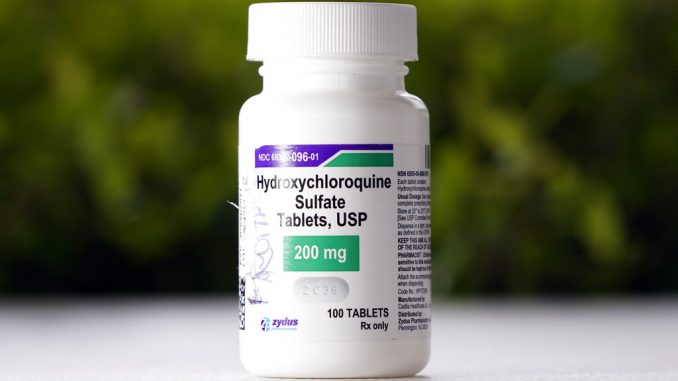
RALEIGH — Earlier this year, the N.C. Pharmacy Board imposed restrictions on seven medications that could be used to treat COVID-19. This restriction was ordered by state health officials at the onset of the pandemic in March.
The N.C. Pharmacy Board (NCBOP) is made up of five members, including President Ashley Duggins of Prevo Drug, Asheboro; Vice President William A. Mixon, The Compounding Pharmacy, Hickory; J. Andrew Bowman, Campbell University College of Pharmacy and Health Sciences in Buies Creek; Mischelle Corbin, a member of the public in Raleigh; Wallace Nelson, Vidant Bertie Hospital, Bertie; and Keith A. Vance, Lewisville Drug Company, Lewisville.
According to the NCBOP website, on “March 24, 2020, the North Carolina Secretary of Health and Human Services and the State Health Director requested that the Medical Board and the Board of Pharmacy adopt the COVID-19 Drug Preservation Rule in order to alleviate shortages and ensure that these drugs are available to patients who need them.”
The COVID-19 Drug Preservation Rule was first enacted on April 1 and then temporarily adopted on June 26. The rule lists seven drugs to be considered “restricted.” The drugs listed are Hydroxychloroquine, Chloroquine, Lopinavir-ritonavir, Ribavirin, Oseltamivir, Darunavir and Azithromycin.
The rule states that a pharmacist “shall fill or refill a prescription for a Restricted Drug only if that prescription bears a written diagnosis from the prescriber consistent with the evidence for its use.” Pharmacists are blocked from filling or refilling a prescription for one of the seven drugs unless a person has been diagnosed with COVID-19.
It also says that when a patient has been diagnosed with COVID-19, any prescription of one of the drugs on the restricted list needs to indicate on the prescription order that the patient has been diagnosed with COVID-19, is limited to “no more than a 14-day supply.” There are also no refills on prescriptions, including emergency prescriptions, “unless a new prescription order is issued in conformance with this Rule.”
The COVID-19 Drug Preservation rule does not affect administration order for inpatients of health care facilities. It also doesn’t apply to prescriptions a patient previously had for one of the restricted drugs on or before March 10, 2020.
The NCBOP website reminds pharmacists that “while these drugs are being investigated as potential COVID-19 treatments, there is at this date only anecdotal evidence of their potential usefulness.”
Recent studies on intervention treatments for high-risk patients which use several of the drugs on the NCBOP’s restricted list have shown promise.
On Oct. 29, Dr. Vladimir Zelenko and his team announced their study on the early intervention and treatment of high-risk COVID-19 patients, saying use of the drugs resulted in “significantly fewer hospitalizations and deaths.” According to a press release about the findings, the treatment consists of “zinc, low-dose hydroxychloroquine, and azithromycin,” and has been referred to as “The Zelenko Protocol.”
“It’s unfortunate that much of the media coverage surrounding hydroxychloroquine has been negative. These three medications are affordable, available in pill form, and work in synergy against COVID-19,” said Zelenko following a rigorous peer review process.
According to Zelenko, “Hydroxychloroquine’s main role is to allow zinc to enter the cell and inhibit the virus’ reproduction. And azithromycin prevents secondary bacterial infection in the lungs and reduces the risk of pulmonary complications.”
The study included 141 patients with laboratory-confirmed severe acute respiratory syndrome coronavirus 2 (SARS-CoV-2) infections. The conclusions of the study showed an association of significantly fewer hospitalizations the sooner the COVID-19 outpatients entered into a “risk stratification-based treatment” using the “triple therapy” combination of zinc with low dose hydroxychloroquine.
North State Journal asked for clarifications on the temporary rule and received an email response from Jay Campbell, executive director of the NCBOP, citing two links for more information. One of the links provided is for a Sept. 17 rulemaking announcement regarding the COVID-19 drugs preservation rule.
According to the rulemaking announcement, the state health director requested that the rule be “adopted as a permanent rule” due to the state of emergency being extended and corresponding potential drug shortages, which “may potentially extend beyond the expiration of the temporary rule.”
“The State Health Director has determined that the State is unlikely to suffer future shortages of two of the drugs previously listed in the temporary and emergency rule, and that those drugs may be removed from the list, while the others should remain,” the rulemaking announcement reads. Also, the NCBOP intends to repeal the rule upon the conclusion of the state of emergency.
A public hearing is set to be held on Dec. 16 at 10 a.m. by video teleconference. The public can participate on Teams at https://tinyurl.com/y27ovmlt, or may call 336-604-5350, conference ID 755 889 266#. Written objections to the rule must be submitted by 12 p.m. on Dec. 17 to Jay Campbell, executive director, North Carolina Board of Pharmacy, 6015 Farrington Road, Suite 201, Chapel Hill, NC 27517, fax (919) 246-1056, e-mail [email protected].


